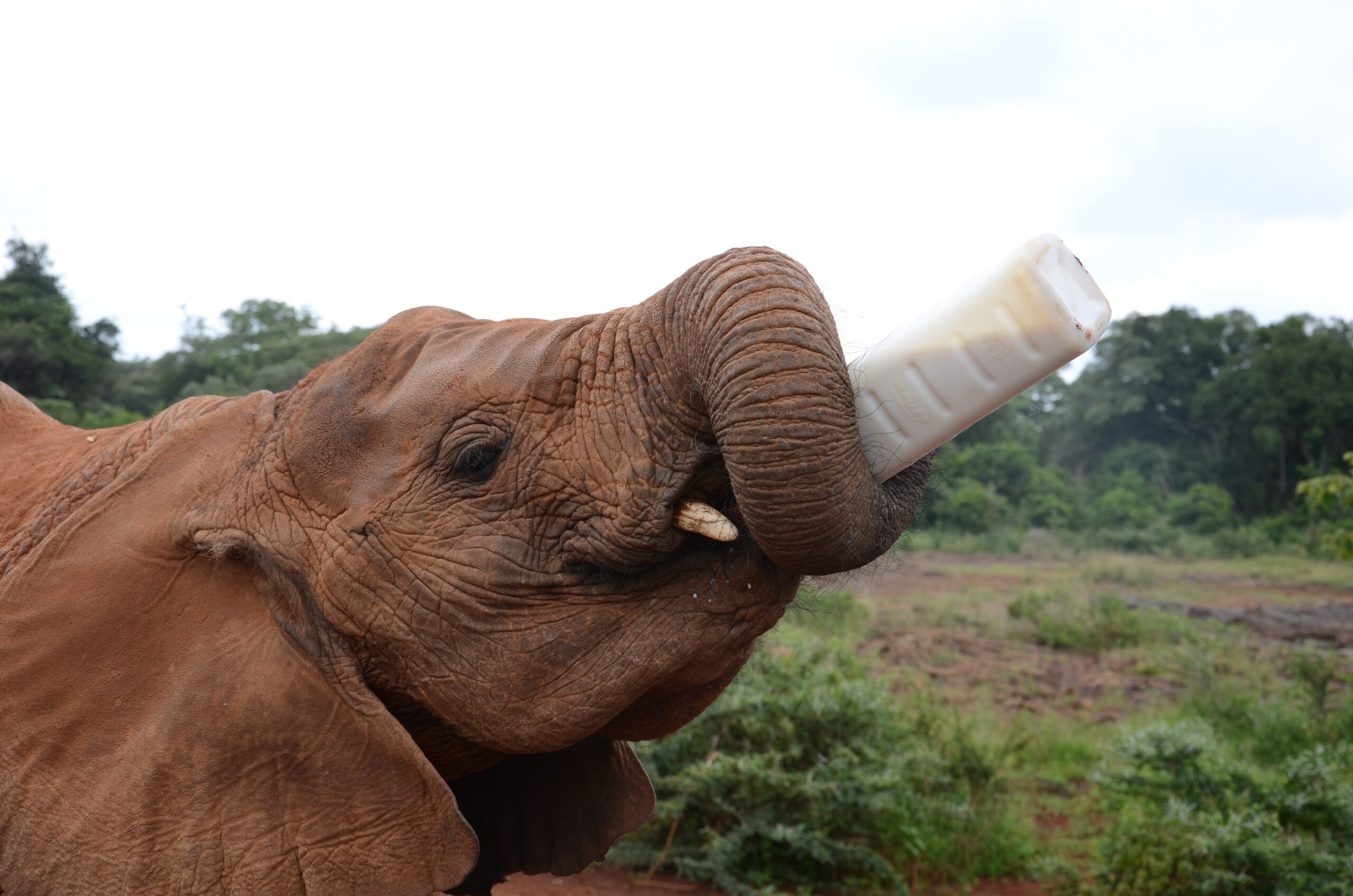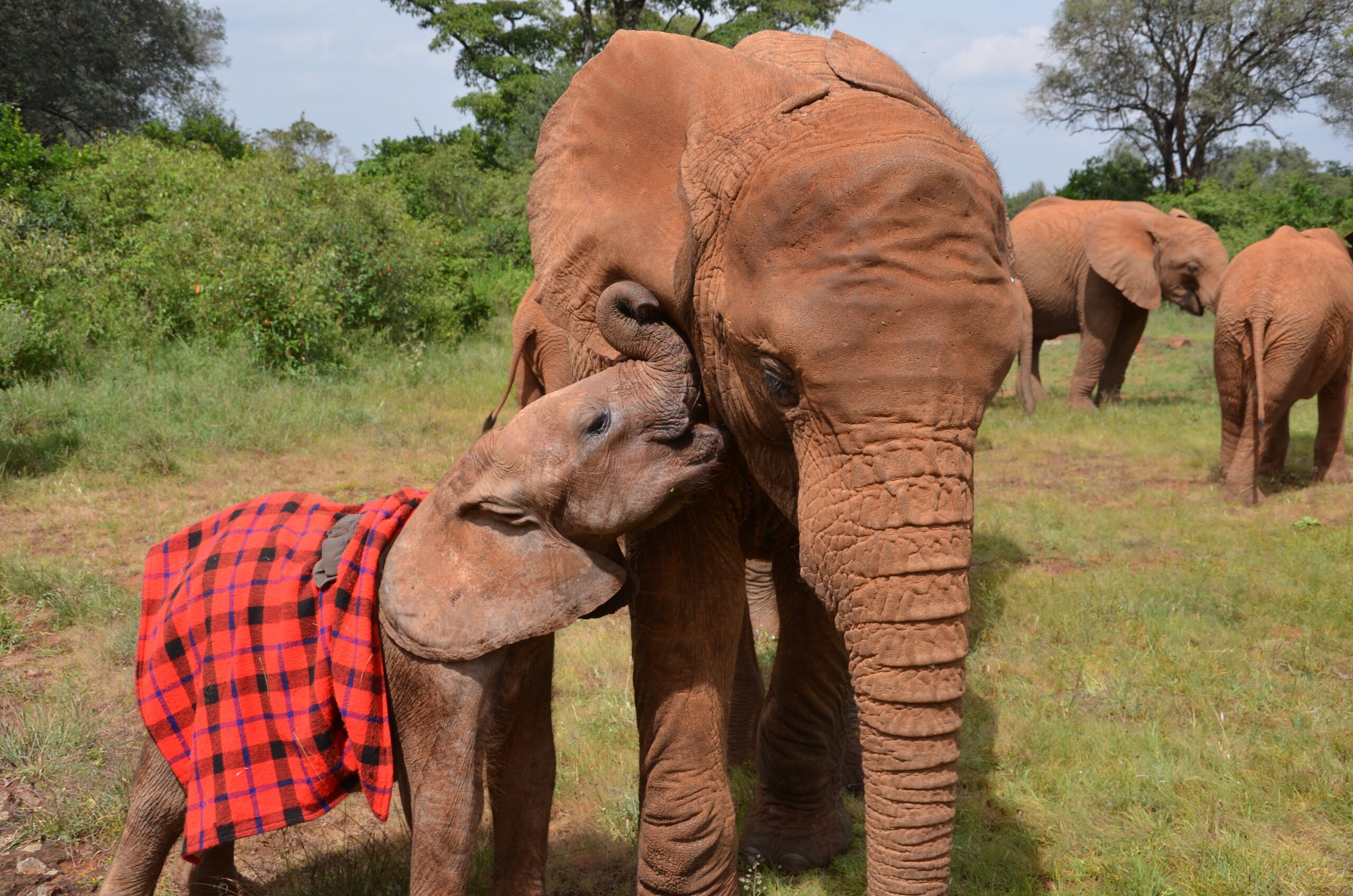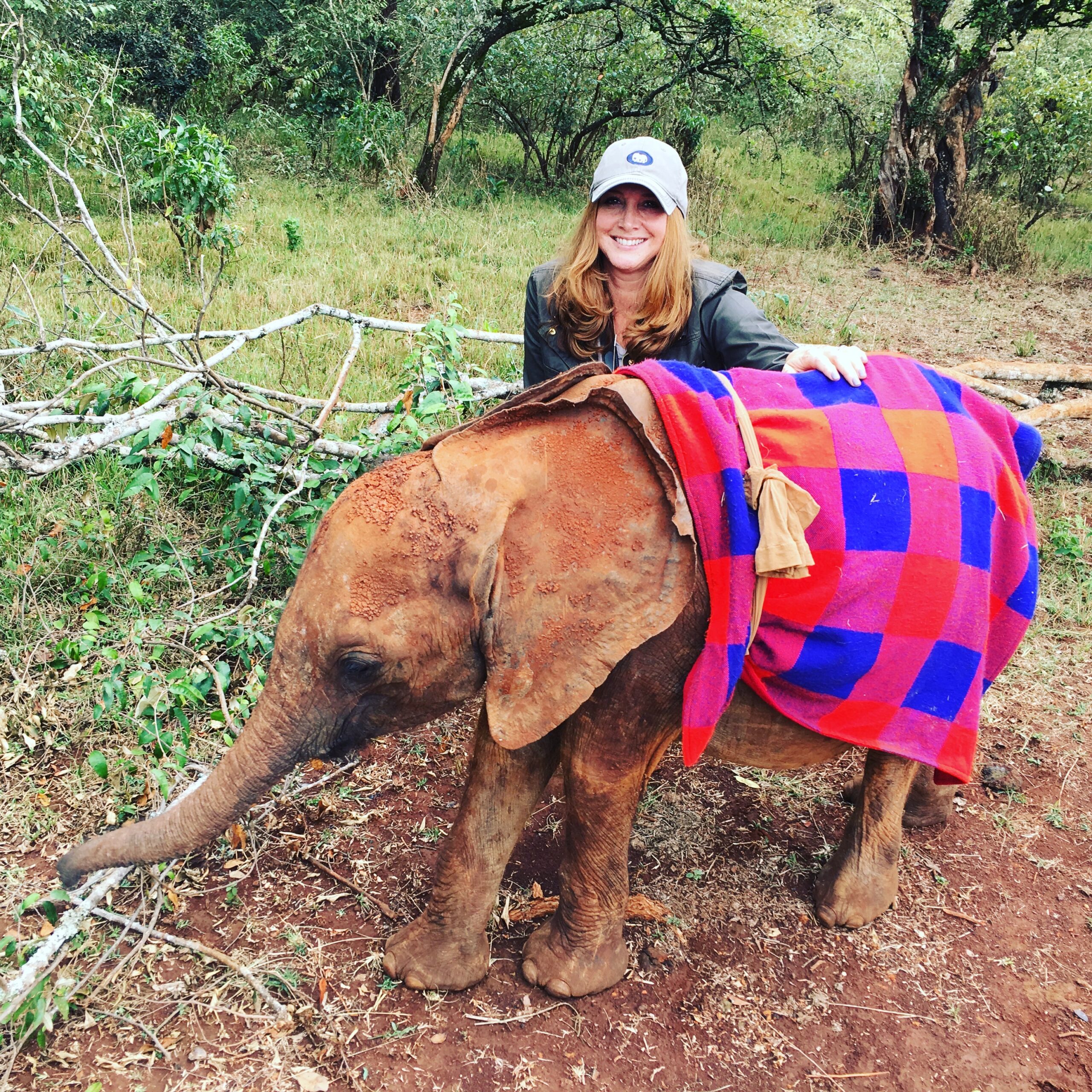Jackie Magid, a friend of Extraordinary Journeys and board member of the U.S. arm of The David Sheldrick Wildlife Trust (DSWT), recently traveled to Kenya. We asked her to share her experience at the Trust’s Nursery:
“I just returned from Kenya a few weeks ago where I had the opportunity as a board member of the U.S. arm of the DSWT to visit the numerous projects this wildlife conservation organization operates to protect wildlife in Kenya. Undoubtedly, one of my favorite experiences was spending time with the baby orphans that are rescued and cared for at the Trust’s Nursery, based in Nairobi National Park. Currently, there are 27 milk-dependent baby elephant orphans at the nursery. While DSWT is primarily known for its hand-rearing of elephants, they don’t discriminate: Kiko the giraffe, Maxwell the rhino and Pea, the ostrich (who thinks she is an elephant) also currently call the Nursery their home.
Each visit with the babies is as exhilarating as the last. Being around these gentle babies is like no other experience I know of. They have so many human qualities and each have their own distinct personality like us. Some are sweet and shy and others are a bit mischievous and rambunctious like my own daughters back home. A litter rougher to the touch and heavier perhaps (babies are born weighing an average 250 pounds so watch your toes)! I always leave my visit with the orphans covered in dirt or mud and a huge smile. Wearing white is obviously not advised!
Without the DSWT, these babies would have no chance of surviving. Most are victims of ivory poaching and human-wildlife conflict – serious issues faced by the 35,000 remaining elephants in Kenya – and they come to the Nursery traumatized. And some do not survive the emotional and physical toll. They need round the clock care, consuming gallons of milk every three hours. As they would have touched their mother every few seconds in the wild, they now depend on their keepers and often are leaning on them and following them every step in the wild and sleeping with them at night. For that reason, keepers are rotated constantly so the elephants don’t get too attached to their keeper (and vice-versa!).
The nursery is just the starting point of their recovery. When the orphans are older and ready, they will ‘graduate’ and join older orphans (currently numbered at 65) in DSWT’s other relocation units in Kenya to eventually rehabilitate them back into the wild when they are about 8 years of age. Almost 100 of the orphans have now been successfully reintegrated into the wild and 23 of them have had their own wild-born babies (7 just in the last twelve months)! Often these ‘ex-orphans’ will come back to the Trust – which they know is a safe haven – for water, medical care and to proudly show off their babies. That is the ultimate sense of gratification for everyone at DSWT.
A visit to the DSWT is a ‘bucket list’ item for anyone young and old and I can assure you, it will be memorable. If you are traveling to Kenya, you will most likely need to be in Nairobi overnight before going on safari. Daily visits at 11 a.m. are available to anyone to see the elephants at DSWT and for foster parents only (it only costs $50 to foster an orphan, which goes towards their care) you can also visit at 5 p.m. to see the elephants come in to the stockades for the night and spend time up close with them. I would recommend both!”
About Jackie Magid
Jackie Magid, based in New York, has been working with the DSWT for several years and currently serves as a board member of the U.S. Friends of the DSWT. If you have any questions about DSWT, email [email protected].


